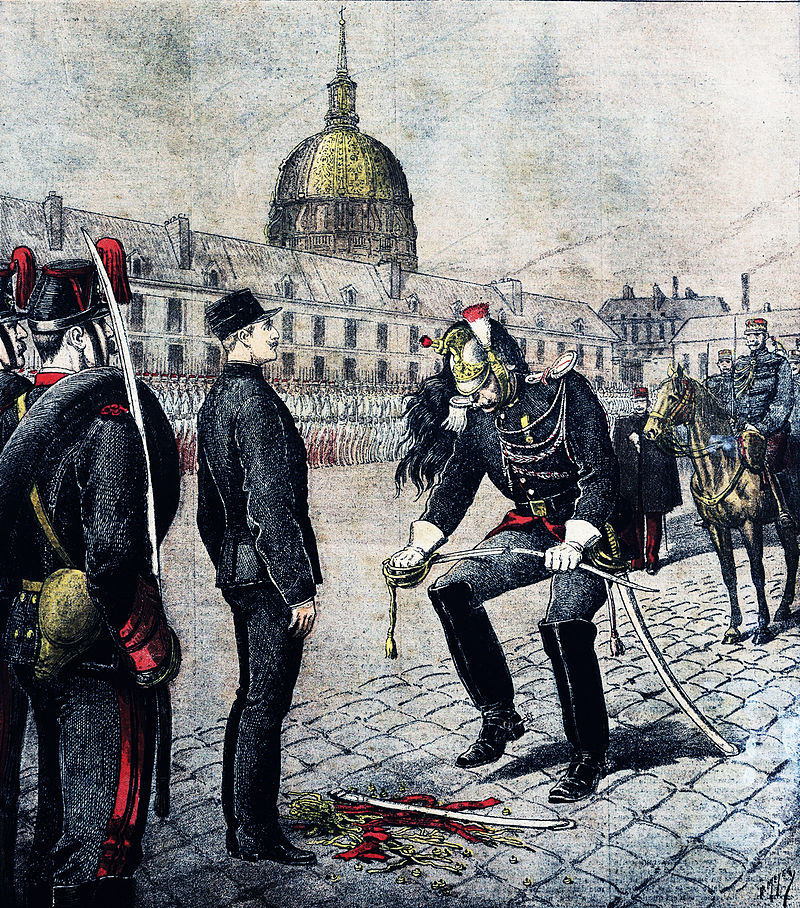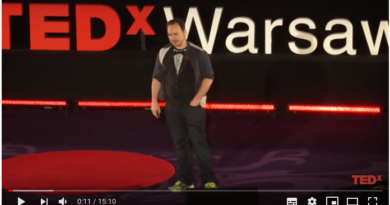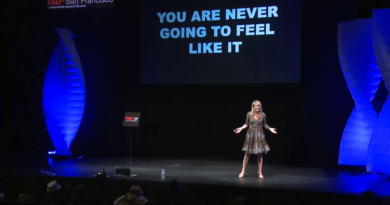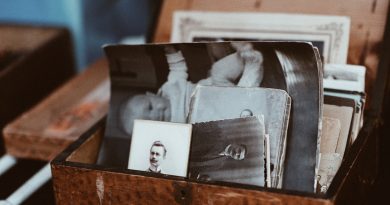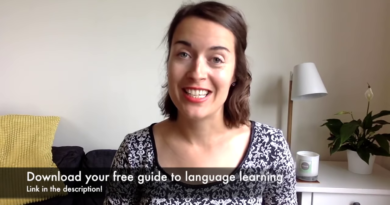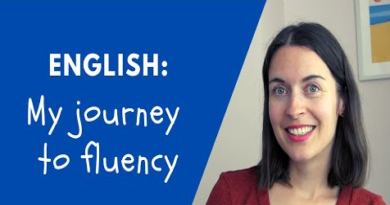Video | Why you think you’re right – even when you’re wrong
Crédito da Imagem: Wikipedia
A perspectiva é tudo, especialmente quando se trata de examinar suas crenças. Você é um soldado, propenso a defender seu ponto de vista a todo custo – ou um batedor, estimulado pela curiosidade? Julia Galef examina as motivações por trás dessas duas mentalidades e como elas moldam a maneira como interpretamos as informações, entrelaçadas com uma lição de história convincente da França do século 19. Quando suas certezas são testadas, Galef pergunta: “O que você mais anseia? Você anseia por defender suas próprias crenças ou anseia ver o mundo tão claramente quanto possível?”
| Audio | |
|---|---|
Normal | Slow |
| English Transcript | Tradução |
| So I'd like you to imagine for a moment that you're a soldier in the heat of battle. | Peço que, por um instante, você imagine que você é um soldado em pleno combate. |
| Maybe you're a Roman foot soldier or a medieval archer or maybe you're a Zulu warrior. | Talvez um soldado romano, um arqueiro medieval, ou quem sabe um guerreiro zulu. |
| Regardless of your time and place, there are some things that are constant. | Independentemente do lugar e da época, algumas coisas não mudam. |
| Your adrenaline is elevated, and your actions are stemming from these deeply ingrained reflexes, reflexes rooted in a need to protect yourself and your side and to defeat the enemy. | Seu nível de adrenalina fica elevado e suas ações são decorrentes de reflexos profundamente arraigados, reflexos que vêm de uma necessidade de proteger a si mesmo e aos seus, e de derrotar o inimigo. |
| So now, I'd like you to imagine playing a very different role, that of the scout. | Agora, peço que você se imagine numa função bem diferente, a de um batedor. |
| The scout's job is not to attack or defend. | A função do batedor não é atacar nem defender. |
| The scout's job is to understand. | Sua função é tentar entender. |
| The scout is the one going out, mapping the terrain, identifying potential obstacles. | É ele quem sai, mapeia o terreno e identifica possíveis obstáculos. |
| And the scout may hope to learn that, say, there's a bridge in a convenient location across a river. | O batedor procura saber, por exemplo, se existe uma ponte num local conveniente, para atravessar um rio. |
| But above all, the scout wants to know what's really there, as accurately as possible. | Mas, acima de tudo, o batedor procura sondar o ambiente, com o máximo de precisão. |
| And in a real, actual army, both the soldier and the scout are essential. | Num exército de verdade, tanto o soldado quanto o batedor são essenciais. |
| But you can also think of each of these roles as a mindset -- a metaphor for how all of us process information and ideas in our daily lives. | Mas você também pode imaginar essas funções como tipos de mentalidade, metáforas de como todos nós processamos informações e ideias no nosso dia a dia. |
| What I'm going to argue today is that having good judgment, making accurate predictions, making good decisions, is mostly about which mindset you're in. | Hoje, o que quero discutir é o fato de que ter bom senso, calcular com precisão e tomar boas decisões têm basicamente a ver com o seu tipo de mentalidade. |
| To illustrate these mindsets in action, I'm going to take you back to 19th-century France, where this innocuous-looking piece of paper launched one of the biggest political scandals in history. | Para ilustrar essas mentalidades em ação, vamos voltar à França do século 19, onde este pedaço de papel aparentemente inofensivo trouxe à tona um dos maiores escândalos políticos da história. |
| It was discovered in 1894 by officers in the French general staff. | Foi descoberto em 1894 por oficiais das forças armadas francesas. |
| It was torn up in a wastepaper basket, but when they pieced it back together, they discovered that someone in their ranks had been selling military secrets to Germany. | Ele foi rasgado e jogado em um cesto de papel, mas, quando seus pedaços foram juntados, descobriu-se que alguém entre os soldados estava vendendo segredos militares à Alemanha. |
| So they launched a big investigation, and their suspicions quickly converged on this man, Alfred Dreyfus. | Uma grande investigação foi iniciada e as suspeitas rapidamente se voltaram para um homem: Albert Dreyfus. |
| He had a sterling record, no past history of wrongdoing, no motive as far as they could tell. | Ele tinha um passado impecável, sem qualquer histórico de infrações e sem motivo, até onde se sabia. |
| But Dreyfus was the only Jewish officer at that rank in the army, and unfortunately at this time, the French Army was highly anti-Semitic. | Porém, Dreyfus era o único oficial judeu naquele grupo militar e, infelizmente, naquela época, o exército francês era extremamente antissemita. |
| They compared Dreyfus's handwriting to that on the memo and concluded that it was a match, even though outside professional handwriting experts were much less confident in the similarity, but never mind that. | A caligrafia de Dreyfus foi comparada à do documento e concluiu-se que eram compatíveis, embora especialistas civis em comparação de caligrafias não tivessem tanta certeza, mas deixa isso pra lá. |
| They went and searched Dreyfus's apartment, looking for any signs of espionage. | O apartamento de Dreyfus foi vasculhado em busca de evidências de espionagem. |
| They went through his files, and they didn't find anything. | Vasculharam os arquivos dele, mas não encontraram nada. |
| This just convinced them more that Dreyfus was not only guilty, but sneaky as well, because clearly he had hidden all of the evidence before they had managed to get to it. | Ficaram ainda mais convencidos de que Dreyfus era não só culpado, mas também sorrateiro, por obviamente ter escondido todas as provas antes que eles pudessem encontrá-las. |
| Next, they went and looked through his personal history for any incriminating details. | Depois, investigaram a vida pessoal dele, tentando encontrar qualquer detalhe incriminador. |
| They talked to his teachers, they found that he had studied foreign languages in school, which clearly showed a desire to conspire with foreign governments later in life. | Falaram com os professores dele e descobriram que ele estudara línguas estrangeiras na escola, o que "obviamente" mostrava um desejo de conspirar junto a governos estrangeiros depois de adulto. |
| His teachers also said that Dreyfus was known for having a good memory, which was highly suspicious, right? | Os professores também disseram que Dreyfus era bom de memória, o que era "muito" suspeito, não? |
| You know, because a spy has to remember a lot of things. | Afinal, um espião precisa se lembrar de muitas coisas. |
| So the case went to trial, and Dreyfus was found guilty. | O caso foi a julgamento e Dreyfus foi considerado culpado. |
| Afterwards, they took him out into this public square and ritualistically tore his insignia from his uniform and broke his sword in two. | Mais tarde, ele foi levado a uma praça pública, a insígnia do uniforme dele foi solenemente rasgada e sua espada foi partida em duas. |
| This was called the Degradation of Dreyfus. | Foi a chamada "degradação de Dreyfus". |
| And they sentenced him to life imprisonment on the aptly named Devil's Island, which is this barren rock off the coast of South America. | Ele foi sentenciado à prisão perpétua na ilha apropriadamente chamada de "Ilha do Diabo", um pedaço de rocha estéril, próximo à costa da América do Sul. |
| So there he went, and there he spent his days alone, writing letters and letters to the French government begging them to reopen his case so they could discover his innocence. | Ele foi mandado pra lá e passava seus dias sozinho, escrevendo cartas e mais cartas ao governo francês, implorando que reabrissem seu caso para que se provasse sua inocência. |
| But for the most part, France considered the matter closed. | Mas a França basicamente considerou o caso dele encerrado. |
| One thing that's really interesting to me about the Dreyfus Affair is this question of why the officers were so convinced that Dreyfus was guilty. | Uma coisa que acho muito interessante no "caso Dreyfus" é por que os oficiais ficaram tão convencidos de que Dreyfus era culpado. |
| I mean, you might even assume that they were setting him up, that they were intentionally framing him. | Podemos até achar que "armaram" pra ele, que o consideraram culpado intencionalmente. |
| But historians don't think that's what happened. | Mas os historiadores não acham que foi isso que aconteceu. |
| As far as we can tell, the officers genuinely believed that the case against Dreyfus was strong. | Até onde se sabe, os oficiais realmente acreditavam que o caso contra Dreyfus era legítimo. |
| Which makes you wonder: What does it say about the human mind that we can find such paltry evidence to be compelling enough to convict a man? | O que nos faz pensar: o que isso revela a respeito da mente humana, a ponto de acharmos que evidências tão insignificantes sejam convincentes o bastante para condenar um homem? |
| Well, this is a case of what scientists call "motivated reasoning." | Esse é um exemplo do que os cientistas chamam de "tendência cognitiva". |
| It's this phenomenon in which our unconscious motivations, our desires and fears, shape the way we interpret information. | É o fenômeno no qual nossas tendências inconscientes, nossos desejos e medos, moldam a forma como interpretamos informações. |
| Some information, some ideas, feel like our allies. | Algumas informações, algumas ideias, parecem ser nossas aliadas. |
| We want them to win. | Queremos que elas vençam. |
| We want to defend them. | Queremos defendê-las. |
| And other information or ideas are the enemy, and we want to shoot them down. | Outras informações e ideias são nossas inimigas, e queremos acabar com elas. |
| So this is why I call motivated reasoning, "soldier mindset." | É por isso que chamo a tendência cognitiva de "mentalidade do soldado". |
| Probably most of you have never persecuted a French-Jewish officer for high treason, I assume, but maybe you've followed sports or politics, so you might have noticed that when the referee judges that your team committed a foul, for example, you're highly motivated to find reasons why he's wrong. | A maioria de vocês provavelmente nunca perseguiu um oficial franco-judeu por traição capital, eu suponho, mas talvez tenham acompanhado esportes ou política e devem ter notado que, quando o juiz diz que o seu time cometeu falta, você tem grande tendência a buscar razões pra ele estar errado. |
| But if he judges that the other team committed a foul -- awesome! That's a good call, let's not examine it too closely. | Se ele disser, porém, que o outro time cometeu falta -- ótimo! Perfeito, deixa quieto. |
| Or, maybe you've read an article or a study that examined some controversial policy, like capital punishment. | Talvez você tenha lido um artigo ou estudo que tratava de alguma política controversa, como a pena de morte. |
| And, as researchers have demonstrated, if you support capital punishment and the study shows that it's not effective, then you're highly motivated to find all the reasons why the study was poorly designed. | Como pesquisadores já demonstraram, se você apoiar a pena de morte e o estudo mostrar que ela não é eficaz, você terá uma forte tendência a buscar todos os argumentos para afirmar que o estudo não foi bem realizado. |
| But if it shows that capital punishment works, it's a good study. | Se ele mostrar que a pena de morte funciona, o estudo é perfeito. |
| And vice versa: if you don't support capital punishment, same thing. | E vice-versa: se você não apoia a pena de morte, o mesmo se aplica. |
| Our judgment is strongly influenced, unconsciously, by which side we want to win. | Nosso julgamento é inconsciente e fortemente influenciado dependendo do lado que queremos que vença. |
| And this is ubiquitous. | Isso influencia tudo. |
| This shapes how we think about our health, our relationships, how we decide how to vote, what we consider fair or ethical. | Isso molda nossa forma de pensar sobre nossa saúde, nossas relações, a forma como decidimos votar, o que consideramos justo ou ético. |
| What's most scary to me about motivated reasoning or soldier mindset, is how unconscious it is. | O que acho mais assustador na tendência cognitiva, ou mentalidade do soldado, é o quanto ela é inconsciente. |
| We can think we're being objective and fair-minded and still wind up ruining the life of an innocent man. | Podemos achar que estamos sendo objetivos e justos e, ainda assim, acabarmos arruinando a vida de um homem inocente. |
| However, fortunately for Dreyfus, his story is not over. | Entretanto, para Dreyfus, felizmente, sua história não acaba aí. |
| This is Colonel Picquart. | Este é o coronel Picquart. |
| He's another high-ranking officer in the French Army, and like most people, he assumed Dreyfus was guilty. | Ele também era oficial de alta patente do exército francês. |
| Also like most people in the army, he was at least casually anti-Semitic. | Como a maioria das pessoas, ele achou que Dreyfus fosse culpado e, como a maioria das pessoas no exército, ele era no mínimo um pouco antissemita. |
| But at a certain point, Picquart began to suspect: "What if we're all wrong about Dreyfus?" | Mas, em certo momento, Picquart começou a pensar: "E se todos estivermos enganados quanto a Dreyfus?" |
| What happened was, he had discovered evidence that the spying for Germany had continued, even after Dreyfus was in prison. | Ele havia descoberto evidências de que a espionagem tinha continuado, mesmo após a prisão de Dreyfus. |
| And he had also discovered that another officer in the army had handwriting that perfectly matched the memo, much closer than Dreyfus's handwriting. | Ele também descobriu que outro oficial do exército tinha uma caligrafia perfeitamente compatível, bem mais até que a caligrafia de Dreyfus. |
| So he brought these discoveries to his superiors, but to his dismay, they either didn't care or came up with elaborate rationalizations to explain his findings, like, "Well, all you've really shown, Picquart, is that there's another spy who learned how to mimic Dreyfus's handwriting, and he picked up the torch of spying after Dreyfus left. But Dreyfus is still guilty." | Ele levou suas descobertas aos seus superiores, mas, para seu espanto, eles não se importaram e às vezes tinham explicações lógicas para aquelas descobertas, tais como: "Bem, Picquart, você só mostrou que existe outro espião que aprendeu a imitar a caligrafia de Dreyfus, e assumiu a tarefa de espionagem depois que ele foi preso. Mesmo assim, Dreyfus é culpado". |
| Eventually, Picquart managed to get Dreyfus exonerated. | No fim, Picquart conseguiu que Dreyfus fosse inocentado. |
| But it took him 10 years, and for part of that time, he himself was in prison for the crime of disloyalty to the army. | Mas ele levou dez anos pra isso e, em parte desse tempo, ele mesmo esteve na prisão pelo crime de deslealdade para com o exército. |
| A lot of people feel like Picquart can't really be the hero of this story because he was an anti-Semite and that's bad, which I agree with. | Muitas pessoas acham que Picquart não pode ser o herói dessa história porque ele era antissemita, e isso é ruim, eu concordo. |
| But personally, for me, the fact that Picquart was anti-Semitic actually makes his actions more admirable, because he had the same prejudices, the same reasons to be biased as his fellow officers, but his motivation to find the truth and uphold it trumped all of that. | Mas pessoalmente, acho que o fato de Picquart ser antissemita, na verdade, torna suas ações ainda mais admiráveis, porque ele tinha os mesmos preconceitos, a mesma tendenciosidade, de seus colegas oficiais, mas sua inclinação por encontrar a verdade e sustentá-la superou tudo isso. |
| So to me, Picquart is a poster child for what I call "scout mindset." | Então, para mim, Picquart é o "garoto propaganda" do que eu chamo de "mentalidade do batedor". |
| It's the drive not to make one idea win or another lose, but just to see what's really there as honestly and accurately as you can, even if it's not pretty or convenient or pleasant. | A vontade não de ver uma ideia ganhar ou perder, mas apenas entender a realidade, da forma mais franca e precisa possível, mesmo que ela não seja bonita, conveniente ou agradável. |
| This mindset is what I'm personally passionate about. | É essa mentalidade que me fascina. |
| And I've spent the last few years examining and trying to figure out what causes scout mindset. | Passei os últimos anos estudando e tentando entender de onde vem a mentalidade do batedor. |
| Why are some people, sometimes at least, able to cut through their own prejudices and biases and motivations and just try to see the facts and the evidence as objectively as they can? | Por que algumas pessoas, pelos menos às vezes, conseguem vencer seus próprios preconceitos e tendenciosidades e tentar ver os fatos e as evidências da forma mais objetiva possível? |
| And the answer is emotional. | E a resposta é emocional. |
| So, just as soldier mindset is rooted in emotions like defensiveness or tribalism, scout mindset is, too. | Assim como a origem da mentalidade do soldado são as emoções, tais como defesa ou tribalismo, a do batedor também. |
| It's just rooted in different emotions. | São apenas emoções diferentes. |
| For example, scouts are curious. | Por exemplo, os batedores são curiosos. |
| They're more likely to say they feel pleasure when they learn new information or an itch to solve a puzzle. | É mais provável que digam que sentem prazer ao receberem novas informações ou uma ânsia por resolver uma charada. |
| They're more likely to feel intrigued when they encounter something that contradicts their expectations. | É mais provável que se sintam curiosos ao descobrirem alguma coisa que contradiga suas expectativas. |
| Scouts also have different values. | Os batedores também têm valores diferentes. |
| They're more likely to say they think it's virtuous to test your own beliefs, and they're less likely to say that someone who changes his mind seems weak. | Eles tendem mais a dizer que acham virtuoso testar suas próprias crenças, e tendem menos a dizer que alguém que mude de ideia demonstra fraqueza. |
| And above all, scouts are grounded, which means their self-worth as a person isn't tied to how right or wrong they are about any particular topic. | Acima de tudo, os batedores são pé no chão, o que significa que sua autoestima, enquanto pessoa, não está ligada ao quanto estão certos ou errados sobre determinado assunto. |
| So they can believe that capital punishment works. | Assim, eles podem acreditar que a pena de morte funcione. |
| If studies come out showing that it doesn't, they can say, "Huh. Looks like I might be wrong. Doesn't mean I'm bad or stupid." | Mas se estudos mostrarem o contrário, eles dizem: "Hum, acho que me enganei, mas não quer dizer que eu seja mau ou idiota". |
| This cluster of traits is what researchers have found -- and I've also found anecdotally -- predicts good judgment. | Esse conjunto de características é o que os pesquisadores descobriram, e que também descobri informalmente, que é indicativo de um bom senso. |
| And the key takeaway I want to leave you with about those traits is that they're primarily not about how smart you are or about how much you know. | O que quero que vocês entendam sobre essas características é que elas não têm fundamentalmente a ver com o quanto você é inteligente, ou com o quanto você sabe. |
| In fact, they don't correlate very much with IQ at all. | Na verdade, elas não têm correlação alguma com QI. |
| They're about how you feel. | Elas se relacionam com a forma como você se sente. |
| There's a quote that I keep coming back to, by Saint-Exupéry. | Existe uma citação que sempre utilizo, uma citação de Saint-Exupéry. |
| He's the author of "The Little Prince." | Ele é o autor de "O Pequeno Príncipe". |
| He said, "If you want to build a ship, don't drum up your men to collect wood and give orders and distribute the work. Instead, teach them to yearn for the vast and endless sea." | Ele disse: "Se você quer construir um navio, não chame as pessoas para juntar madeira, ou atribua-lhes tarefas e trabalho, mas sim ensine-as a desejar a infinita imensidão do oceano". |
| In other words, I claim, if we really want to improve our judgment as individuals and as societies, what we need most is not more instruction in logic or rhetoric or probability or economics, even though those things are quite valuable. | Em outras palavras, eu afirmo, se realmente quisermos melhorar nosso bom senso, enquanto indivíduos e enquanto sociedade, o que mais precisamos não é de mais instrução em lógica, retórica, probabilidade ou economia, embora essas coisas sejam muito valiosas. |
| But what we most need to use those principles well is scout mindset. | O que mais precisamos para usar bem esses princípios é da mentalidade do batedor. |
| We need to change the way we feel. | Precisamos mudar nossa forma de sentir. |
| We need to learn how to feel proud instead of ashamed when we notice we might have been wrong about something. | Precisamos aprender a termos orgulho em vez de vergonha, ao percebermos que podemos estar errados. |
| We need to learn how to feel intrigued instead of defensive when we encounter some information that contradicts our beliefs. | Precisamos aprender a nos sentirmos curiosos em vez de defensivos, ao nos depararmos com informações que contradigam nossas crenças. |
| So the question I want to leave you with is: What do you most yearn for? | Então, a pergunta com a qual quero encerrar é: qual é a coisa pela qual você mais anseia? |
| Do you yearn to defend your own beliefs? | Você anseia por defender suas próprias crenças? |
| Or do you yearn to see the world as clearly as you possibly can? | Ou por ver o mundo da forma mais clara possível? |
| Thank you. | Obrigada. |
Contagem de palavras
A tabela abaixo exibe as palavras encontradas neste vídeo bem como o número de vezes em que aparecem.
Veja também: Para que serve esta tabela?
| Freq. | Palavra | Freq. | Palavra | Freq. | Palavra |
|---|---|---|---|---|---|
| 71 | to | 66 | the | 51 | and |
| 38 | that | 36 | a | 28 | of |
| 28 | is | 28 | in | 27 | they |
| 23 | you | 22 | or | 21 | we |
| 20 | was | 20 | as | 19 | but |
| 18 | his | 17 | this | 17 | for |
| 16 | he | 16 | dreyfus | 14 | what |
| 14 | so | 13 | about | 12 | it |
| 12 | how | 11 | are | 10 | mindset |
| 10 | like | 10 | I | 10 | had |
| 9 | which | 9 | scout | 9 | our |
| 9 | not | 9 | if | 9 | can |
| 9 | all | 8 | your | 8 | want |
| 8 | most | 8 | feel | 7 | picquart |
| 7 | it's | 7 | army | 6 | you're |
| 6 | with | 6 | when | 6 | up |
| 6 | they're | 6 | them | 6 | some |
| 6 | soldier | 6 | say | 6 | really |
| 6 | need | 6 | more | 6 | information |
| 6 | have | 6 | good | 6 | at |
| 6 | also | 5 | wrong | 5 | why |
| 5 | went | 5 | think | 5 | there |
| 5 | their | 5 | punishment | 5 | motivated |
| 5 | just | 5 | him | 5 | handwriting |
| 5 | guilty | 5 | french | 5 | find |
| 5 | even | 5 | capital | 4 | yearn |
| 4 | were | 4 | well | 4 | these |
| 4 | that's | 4 | study | 4 | people |
| 4 | out | 4 | one | 4 | officers |
| 4 | officer | 4 | much | 4 | might |
| 4 | me | 4 | maybe | 4 | likely |
| 4 | learn | 4 | judgment | 4 | I'm |
| 4 | highly | 4 | found | 4 | evidence |
| 4 | dreyfus's | 4 | don't | 4 | discovered |
| 4 | case | 4 | call | 4 | because |
| 4 | be | 4 | anti | 4 | another |
| 4 | an | 3 | you've | 3 | win |
| 3 | what's | 3 | time | 3 | through |
| 3 | those | 3 | things | 3 | there's |
| 3 | semitic | 3 | see | 3 | scouts |
| 3 | same | 3 | rooted | 3 | reasons |
| 3 | reasoning | 3 | own | 3 | other |
| 3 | on | 3 | mind | 3 | man |
| 3 | life | 3 | know | 3 | instead |
| 3 | ideas | 3 | history | 3 | he's |
| 3 | going | 3 | do | 3 | different |
| 3 | defend | 3 | clearly | 3 | by |
| 3 | beliefs | 3 | back | 3 | any |
| 2 | years | 2 | works | 2 | who |
| 2 | we're | 2 | way | 2 | very |
| 2 | unconscious | 2 | traits | 2 | took |
| 2 | too | 2 | though | 2 | thing |
| 2 | tell | 2 | team | 2 | teachers |
| 2 | support | 2 | story | 2 | still |
| 2 | spying | 2 | spy | 2 | spent |
| 2 | something | 2 | someone | 2 | side |
| 2 | shows | 2 | scout's | 2 | said |
| 2 | right | 2 | researchers | 2 | reflexes |
| 2 | question | 2 | prison | 2 | prejudices |
| 2 | personally | 2 | part | 2 | only |
| 2 | no | 2 | never | 2 | motivations |
| 2 | memo | 2 | mean | 2 | managed |
| 2 | making | 2 | makes | 2 | lot |
| 2 | looking | 2 | letters | 2 | less |
| 2 | leave | 2 | least | 2 | launched |
| 2 | judges | 2 | job | 2 | jewish |
| 2 | I've | 2 | intrigued | 2 | imagine |
| 2 | I'd | 2 | high | 2 | having |
| 2 | happened | 2 | get | 2 | germany |
| 2 | from | 2 | france | 2 | foul |
| 2 | foreign | 2 | far | 2 | fair |
| 2 | fact | 2 | example | 2 | enemy |
| 2 | encounter | 2 | emotions | 2 | doesn't |
| 2 | didn't | 2 | could | 2 | convinced |
| 2 | convenient | 2 | contradicts | 2 | committed |
| 2 | been | 2 | bad | 2 | assume |
| 2 | after | 2 | actions | 2 | accurately |
| 2 | above | 1 | zulu | 1 | yourself |
| 1 | wrongdoing | 1 | writing | 1 | worth |
| 1 | world | 1 | work | 1 | words |
| 1 | wood | 1 | wonder | 1 | wind |
| 1 | where | 1 | weak | 1 | wastepaper |
| 1 | warrior | 1 | wants | 1 | vote |
| 1 | virtuous | 1 | vice | 1 | versa |
| 1 | vast | 1 | values | 1 | valuable |
| 1 | use | 1 | us | 1 | uphold |
| 1 | uniform | 1 | unfortunately | 1 | understand |
| 1 | unconsciously | 1 | ubiquitous | 1 | two |
| 1 | trying | 1 | try | 1 | truth |
| 1 | trumped | 1 | tribalism | 1 | trial |
| 1 | treason | 1 | torn | 1 | tore |
| 1 | torch | 1 | topic | 1 | together |
| 1 | today | 1 | tied | 1 | then |
| 1 | thank | 1 | than | 1 | th |
| 1 | test | 1 | terrain | 1 | teach |
| 1 | talked | 1 | takeaway | 1 | take |
| 1 | sword | 1 | suspicious | 1 | suspicions |
| 1 | suspect | 1 | superiors | 1 | such |
| 1 | stupid | 1 | studies | 1 | studied |
| 1 | strongly | 1 | strong | 1 | sterling |
| 1 | stemming | 1 | staff | 1 | square |
| 1 | sports | 1 | south | 1 | sometimes |
| 1 | solve | 1 | societies | 1 | sneaky |
| 1 | smart | 1 | similarity | 1 | signs |
| 1 | shown | 1 | showing | 1 | showed |
| 1 | shoot | 1 | ship | 1 | shapes |
| 1 | shape | 1 | setting | 1 | sentenced |
| 1 | semite | 1 | selling | 1 | self |
| 1 | seems | 1 | secrets | 1 | searched |
| 1 | sea | 1 | scientists | 1 | school |
| 1 | scary | 1 | scandals | 1 | saint |
| 1 | ruining | 1 | roman | 1 | roles |
| 1 | role | 1 | rock | 1 | river |
| 1 | ritualistically | 1 | rhetoric | 1 | reopen |
| 1 | remember | 1 | relationships | 1 | regardless |
| 1 | referee | 1 | record | 1 | real |
| 1 | read | 1 | rationalizations | 1 | ranks |
| 1 | ranking | 1 | rank | 1 | quote |
| 1 | quite | 1 | quickly | 1 | puzzle |
| 1 | public | 1 | proud | 1 | protect |
| 1 | professional | 1 | process | 1 | probably |
| 1 | probability | 1 | principles | 1 | prince |
| 1 | primarily | 1 | pretty | 1 | predicts |
| 1 | predictions | 1 | potential | 1 | poster |
| 1 | possibly | 1 | possible | 1 | poorly |
| 1 | politics | 1 | political | 1 | policy |
| 1 | point | 1 | pleasure | 1 | pleasant |
| 1 | playing | 1 | place | 1 | pieced |
| 1 | piece | 1 | picked | 1 | phenomenon |
| 1 | personal | 1 | person | 1 | persecuted |
| 1 | perfectly | 1 | past | 1 | passionate |
| 1 | particular | 1 | paper | 1 | paltry |
| 1 | over | 1 | outside | 1 | orders |
| 1 | off | 1 | obstacles | 1 | objectively |
| 1 | objective | 1 | now | 1 | noticed |
| 1 | notice | 1 | next | 1 | new |
| 1 | named | 1 | motive | 1 | motivation |
| 1 | mostly | 1 | moment | 1 | mindsets |
| 1 | minded | 1 | mimic | 1 | military |
| 1 | metaphor | 1 | men | 1 | memory |
| 1 | medieval | 1 | means | 1 | may |
| 1 | matter | 1 | matched | 1 | match |
| 1 | mapping | 1 | make | 1 | lose |
| 1 | looks | 1 | looked | 1 | logic |
| 1 | location | 1 | lives | 1 | little |
| 1 | let's | 1 | left | 1 | learned |
| 1 | later | 1 | last | 1 | languages |
| 1 | known | 1 | key | 1 | keep |
| 1 | itch | 1 | isn't | 1 | island |
| 1 | iq | 1 | investigation | 1 | into |
| 1 | interpret | 1 | interesting | 1 | intentionally |
| 1 | instruction | 1 | insignia | 1 | innocuous |
| 1 | innocent | 1 | innocence | 1 | ingrained |
| 1 | influenced | 1 | individuals | 1 | incriminating |
| 1 | improve | 1 | imprisonment | 1 | illustrate |
| 1 | identifying | 1 | idea | 1 | human |
| 1 | huh | 1 | however | 1 | hope |
| 1 | honestly | 1 | historians | 1 | himself |
| 1 | hidden | 1 | hero | 1 | heat |
| 1 | health | 1 | has | 1 | grounded |
| 1 | governments | 1 | government | 1 | give |
| 1 | genuinely | 1 | general | 1 | framing |
| 1 | fortunately | 1 | foot | 1 | followed |
| 1 | findings | 1 | files | 1 | figure |
| 1 | few | 1 | fellow | 1 | fears |
| 1 | facts |

